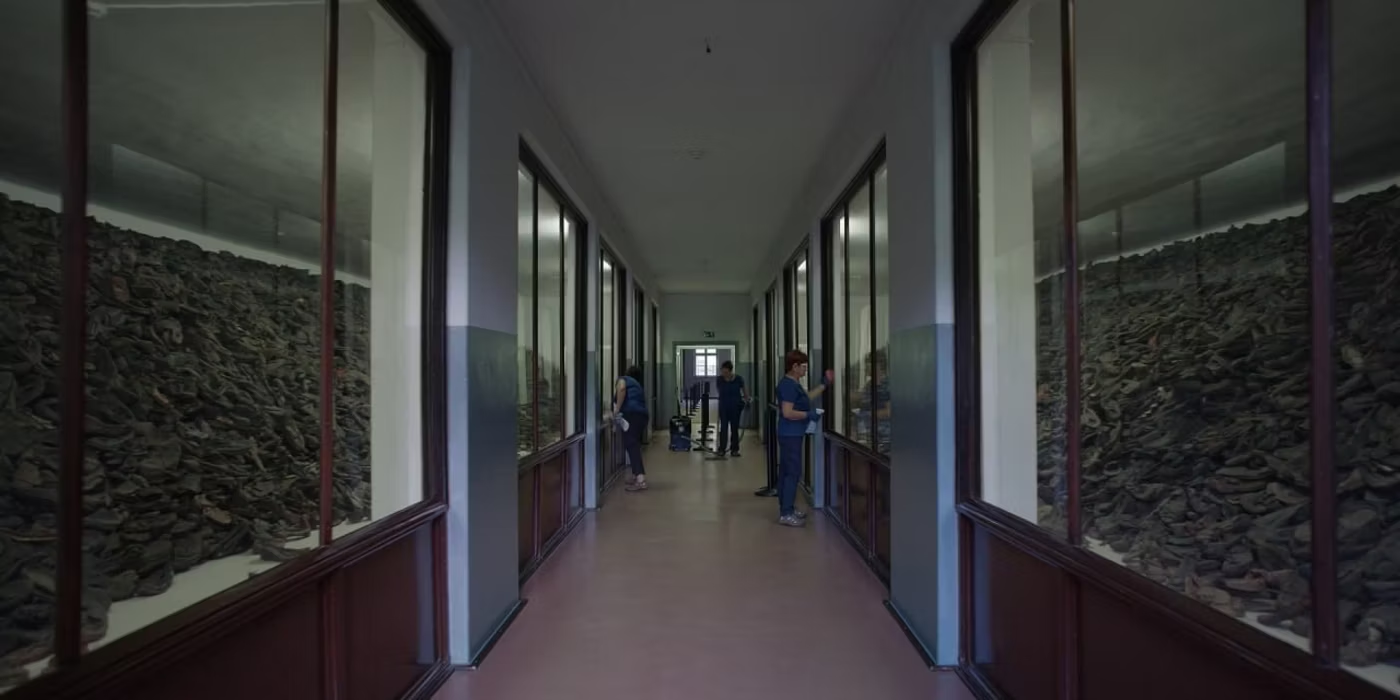When we were told on Tuesday that The Zone of Interest would have a plot twist of sorts, I did not expect Glazer to show the cleaning and preparation of a modern Holocaust museum. While I could recognize this moment as some example of alternative continuity editing, I initially found it to be confusing, as it was followed only by Hoss descending the stairs into darkness. I was stirred but I could not understand what I just watched. However, upon further reflection of the use of (and lack of) sound in the movie, the gravity of what Glazer might have intended with this particular scene struck me.

The scene showed the modern-day museum employees, who, much like the family in the film, appear desensitized to their surroundings, sweeping away dust that might very likely contain the ashes of victims almost symbolic of the inescapable remnants of human loss embedded in that place. This condition was also presented in various other scenes throughout the film when the wife found lipstick in the coat pocket, when Hoss found human remains in the river where he played with his kids, and when the ashes of the victims were mixed with the soil of the family’s garden and inhaled by every single person in the surrounding environment.
Just as the family back then ignored the routine, mechanical sounds of death (the sounds of gunshots, marching feet, bodies falling) all around them to continue with their daily lives, today, similar desensitization might threaten to distance us from the pain of the victims. In the museum the act of sweeping, accompanied by the sound of the vacuum, seems to suggest that even now, the suffering is at risk of being forgotten. Lost in the noise of the everyday. I think this film was asking “What does apathy sound like?”. Apathy which every human being can manage to possess to some extent.
For this reason I think the sound editing was the most striking aspect of the film and provided the best insight into what Glazer was trying to say. I should mention that I am not saying Hoss’ family and the cleaners view the situation the same. Throughout the film with the family living their domestic life, the horrors of the camps are intentionally muted—reduced to faint noises in the background (additionally visually blocked such as when the mother said vines were being grown to cover the walls). In the modern-day cleaning scenes, the sounds of domestic cleaning (vacuums, wiping, sweeping) , however, represent an opposing kind of “sanitization”, one where the goal is not to obscure but to preserve and keep in sight (as they are wiping the glass).